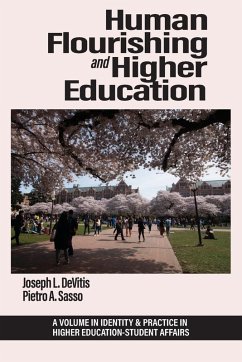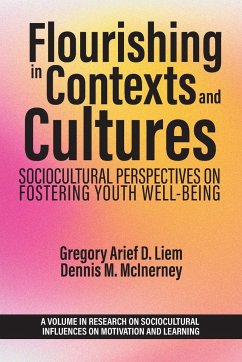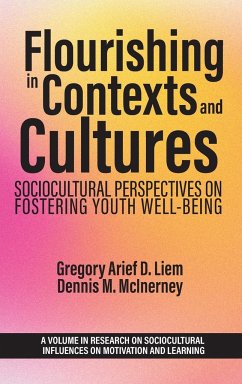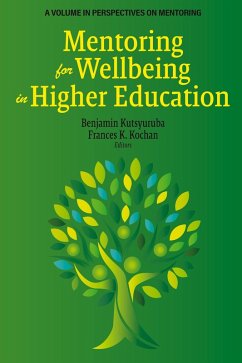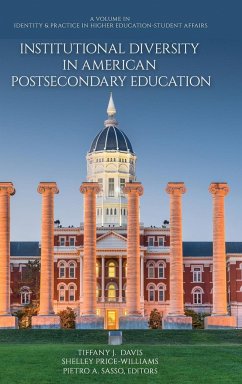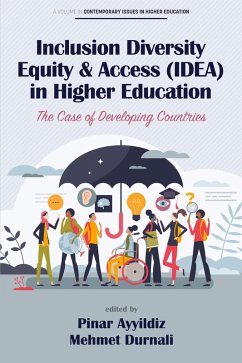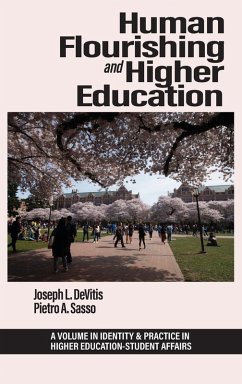
Human Flourishing and Higher Education

PAYBACK Punkte
55 °P sammeln!
This book provides a more overarching, inclusive appraisal of "human flourishing," especially as it applies to the larger society and higher education. In an increasingly fractured world, it is imperative that both internal (individual) attributes of that notion be juxtaposed with external (social, economic, and political) factors that may either enhance or constrain development toward a more fulsome realization of "human flourishing." The text focuses more on external contingencies since that side of the equation has been more submerged through history than the former model. Thus, the chapter...
This book provides a more overarching, inclusive appraisal of "human flourishing," especially as it applies to the larger society and higher education. In an increasingly fractured world, it is imperative that both internal (individual) attributes of that notion be juxtaposed with external (social, economic, and political) factors that may either enhance or constrain development toward a more fulsome realization of "human flourishing." The text focuses more on external contingencies since that side of the equation has been more submerged through history than the former model. Thus, the chapters take on a kind of Deweyan approach in that they simultaneously treat school and society, rather than a narrow look at only higher education. The methodological lenses for the book include critical pedagogy, critical social theory, philosophical analysis, and qualitative research. The volume uses the term "human flourishing," as opposed to "human thriving," because (1) it connotes a fuller flavor for the means and ends in developing both individuals and societies; (2) "thriving" sometimes connotes a sense of status, a problematic aspirational goal; (3) more universities and colleges are creating "centers for human flourishing," as in the case of Baylor, Harvard, Notre Dame of Maryland, and Stanford. In sum, "human flourishing" seems more attuned to the larger aims of liberal education, building a good life and a saner society, and the forging of continuous efforts toward higher ethical aims. Indeed, it is more synonymous with fulsome growth in individual identity and the enrichment of cultural development within a pluralistic world.





